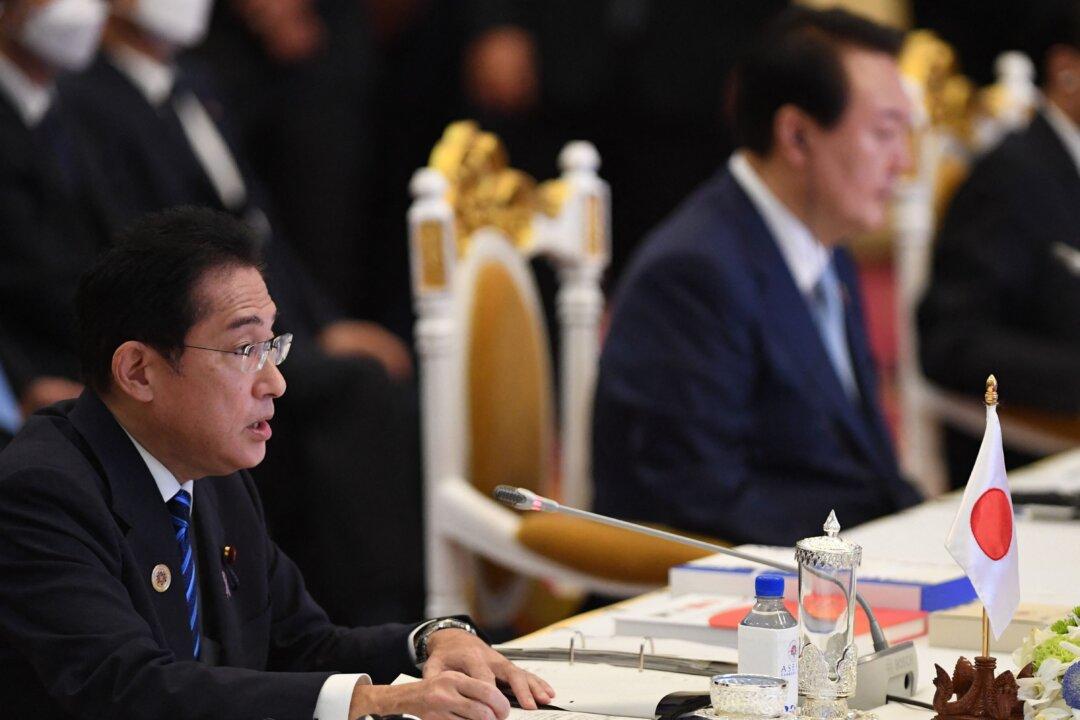South Korea’s government announced a plan on Sunday that aims to resolve a long-running dispute on compensating Koreans forced to work under Japan’s colonial rule of the Korean Peninsula between 1910 and 1945.
The move marks a step toward improving ties between the two nations and comes as South Korean President Yoon Suk-yeol seeks to bolster relations with Japan amid ongoing concerns regarding North Korea’s ever-increasing nuclear weapons program.




